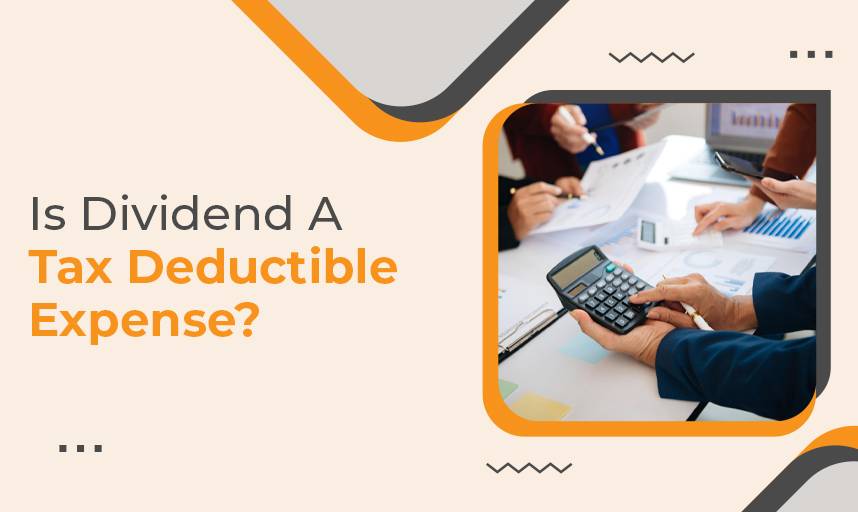Is Dividend A Tax Deductible Expense?

Are you an Australian investor, confused by the complex nuances of dividend income and the associated tax implications? You’re not alone. The complexities of the Australian tax system, particularly concerning dividends, can be a source of confusion and anxiety for many.
So we decided to share an in-depth blog on Is Dividend a tax deductible expense so that you can learn more about it and make informed decisions.
Understanding Deductions From Dividend Income
The Australian Taxation Office (ATO) sets guidance on expenses that may be deducted when derived from share income. Management fees, interest on loans used to purchase shares, and even some travel expenses are examples of these costs. The deductibility of these expenses, however, is subject to certain restrictions and limitations.
Management Fees
Investors who pay ongoing management fees or retainers to investment advisers can claim these as allowable deductions. However, the deduction is proportionate if the advice covers non-investment matters or pertains partly to investments that do not yield assessable income. Fees paid for creating an initial investment plan are not deductible.
Interest on Loans
Investors who pay ongoing management fees or retainers to investment advisers can claim these as allowable deductions. However, the deduction is proportionate if the advice covers non-investment matters or pertains partly to investments that do not yield assessable income. Fees paid for creating an initial investment plan are not deductible.
Interest on Capital Protected Borrowings
Interest attributable to capital protection under a capital-protected borrowing arrangement is not deductible if the arrangement is for shares, units, or stapled securities held on a capital account for investment purposes.
Travel Expenses
Deductions can be claimed for travel expenses directly related to servicing your investment portfolio. However, if the travel has a predominantly private nature, only expenses directly related to the portfolio are allowable.
Cost of Journals and Publications
The cost of specialist investment journals and subscriptions or share market information services used to manage your share portfolio can be claimed as a deduction.
Internet Access and Computers
Some costs of internet access used in managing your portfolio and the decline in value of your computer equipment used for income-producing purposes can be claimed as deductions.
Borrowing Expenses
Expenses incurred directly in taking out a loan for purchasing shares expected to produce assessable dividend income can be claimed. However, there are conditions, such as the apportionment of expenses over five years or the term of the loan if the total exceeds $100.
Dividends from Listed Investment Companies (LIC)
If an LIC pays you a dividend that includes an LIC capital gain amount, you may be entitled to an income tax deduction, provided you meet specific conditions, including being an Australian resident and the dividend being paid after 1 July 2001.
Other Deductions and Non-Deductible Expenses
Postage and other costs like bookkeeping that are directly connected to keeping your portfolio are tax deductible. However, unless you are operating a business of share trading, the costs of purchasing shares and losses on selling shares are not tax deductible.
Conclusion
Dividend deductions can be claimed, but only under certain circumstances. Complying with regulations and making the most of deductions is complicated, but being well-informed and consulting an expert can help. If you find it difficult to deal with regulations of the ATO, you can consult KPG Taxation which has expert tax accountants in Australia. They can help you to make well-informed decisions to successfully claim dividend tax deductions.

Focus On Growing Your Business, Leave The Accounting On Us!
- Income Tax : File your taxes & get the best claims & returns.
- Accountancy : Hire expert accountants to manage your transactions.
- Bookkeeping : Let us handle your record books and expense reports.
- Business Advisory : From company set-up to payroll, we handle it all.



